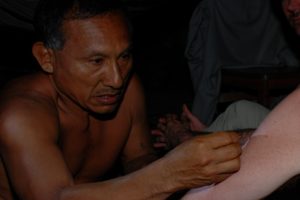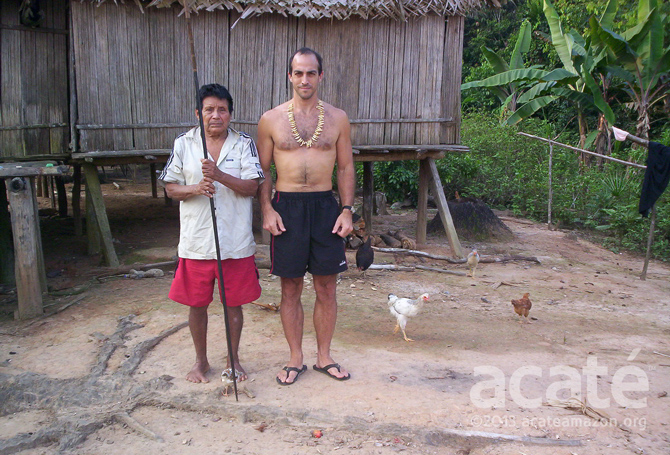
Saving Traditional Medicine One Village at a Time
Matsés traditional healing systems have been passed down through the generations for hundreds of years. The knowledge and techniques accumulated within this effective health care system are a product of their deep spiritual and physical ties to the natural environment. The health of the Matsés tribe has always depended on the knowledge and wisdom of their elders. In a world in which environmental and cultural change is profoundly transforming even the most isolated societies, the healing knowledge of the Amazonian shaman is rapidly disappearing.

Acaté field coordinator Dr. David Fleck with Matsés elder and teacher Manuel Tumi
It is hard to overstate just how quickly this knowledge is lost. The transition following initial contact is sudden and catastrophic. Once extinguished, this knowledge, along with their self-sufficiency, is lost and can never be fully reclaimed. What follows is total dependence on the rudimentary and low quality external health care able to be provided in such remote and difficult-to-access settings. It is no coincidence that, in every country of the Americas, indigenous people have among the highest rates of disease and mortality.
Having witnessed other indigenous groups lose their shamanic culture, the Matsés have asked Acaté to help them preserve and propagate their traditional systems of medicine. To accomplish this important work, Acaté has identified the remaining Matsés elders from each of the 15 villages who are the last holders of this traditional knowledge. Each village has a team that includes an elder and two apprentices to assist in the collection and preparation of medicines. This approach simultaneously documents the medicines and transmits the knowledge to the future leaders of the villages, preserving Matsés medicine for future generations not only in writing but in practice as well.
Already our team has documented over 120 plants covering eight systems of disease. The Matsés Traditional Medicine Encyclopedia is written in their own language, and will not be translated into Spanish or English to protect the medicines from bio-prospectors. Below is an excerpt from the Encyclopedia reproduced with permission of the Matsés with the photographs removed:
Aidën Matses shictodo cuëma abiuc daëdi usudquidtapa nacusudec nuamboshë, tibocadenquio. Adsho bedtequid uadantedapa nec. Aid cumapenec tibocanenquio nuamboshë usudquidtapa yec usudquidquio nec. Adsho, aid bedshunac bëdanec. Tantiadquiecquid aid nec. Bacuëmpi chedo usudec aidën. Abitedimbo usudquid uadantedapa nec. Naden tsuctotequid nec. Aton podouidtsëqui bedec. Matsun tsuctoshon nacmishec. Nuamboshë penquio acte cacushec, pitsëc chucuuaquin. Adoshon nacmishte uadantedapa nec. Aidën cuidac, badedquioshë bëdanquid nec.
This coming month, the Matsés Traditional Medicine Initiative will be expanding to another village on the Rio Galvez, which contains some of the oldest and most respected shamans. The importance and long-term significance of this project for the Matsés people cannot be overstated. A project of this nature and scope is only possible due to the experience and close relationship our team has on the ground with the Matsés people, but it needs your support today to continue.
Every donation helps protect their health for future generations!
Thank you again for your support. By donating to Acaté, you are making a difference.
— The Acaté Team
